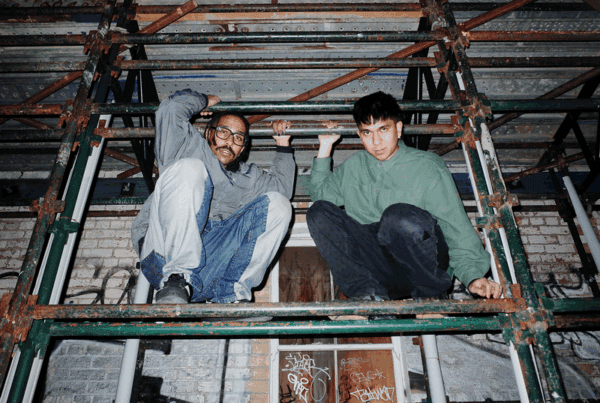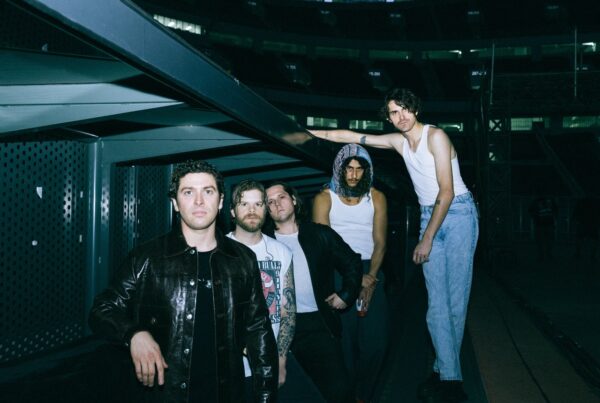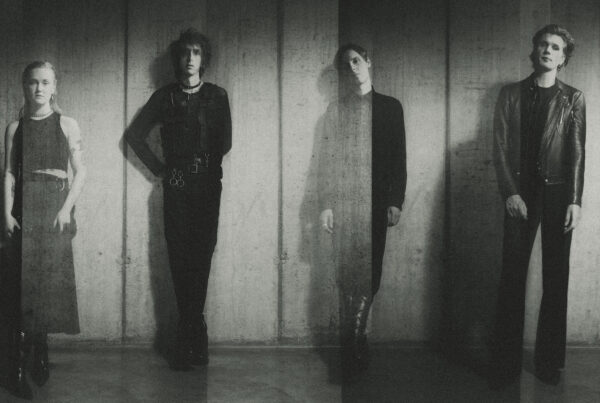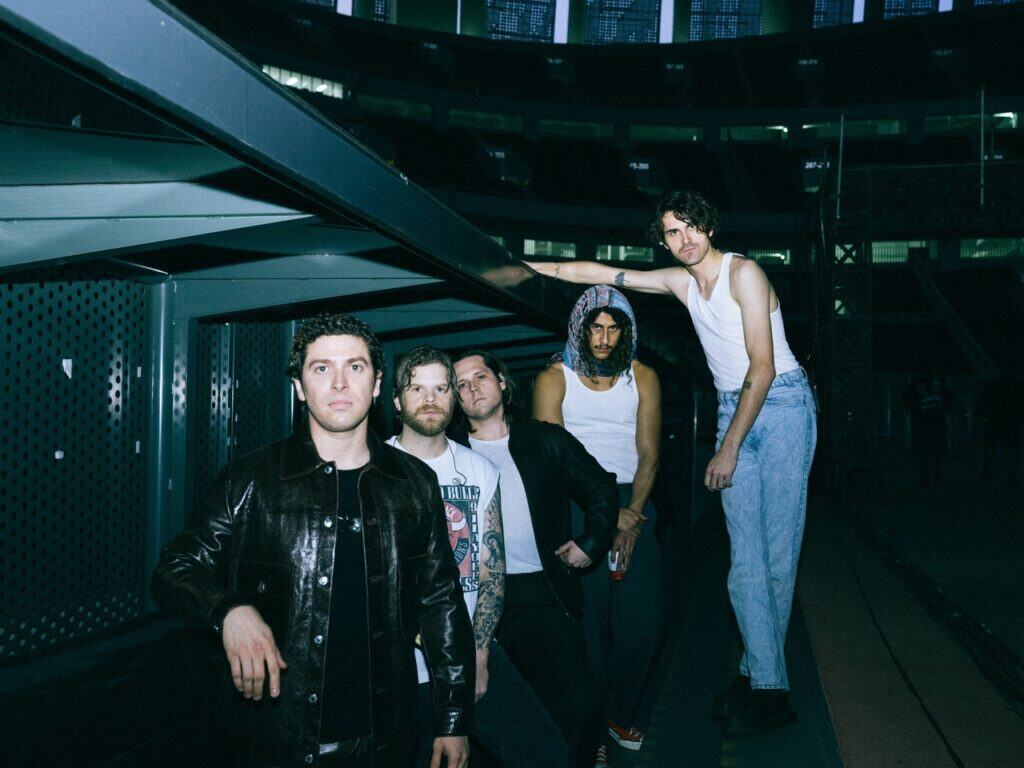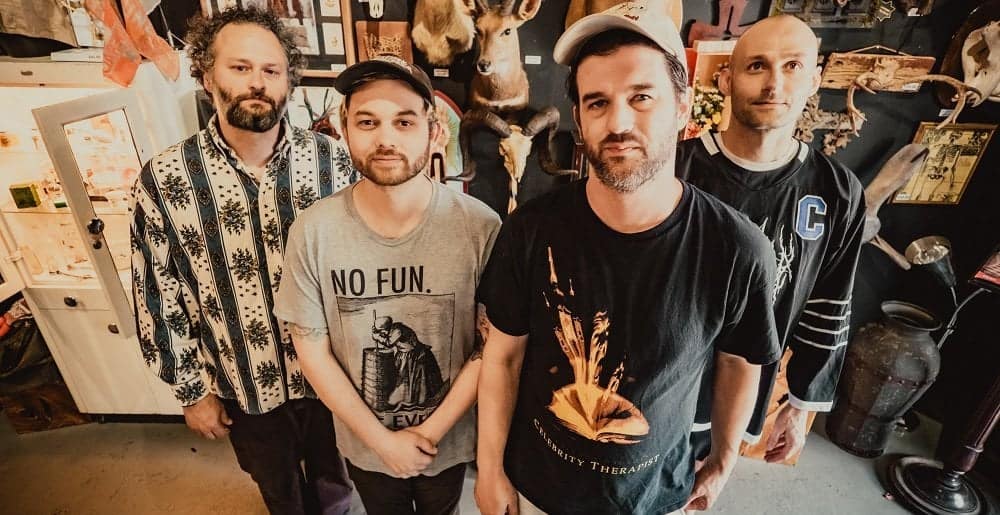“When people start slagging you off, that’s when you know you’re doing something right.”
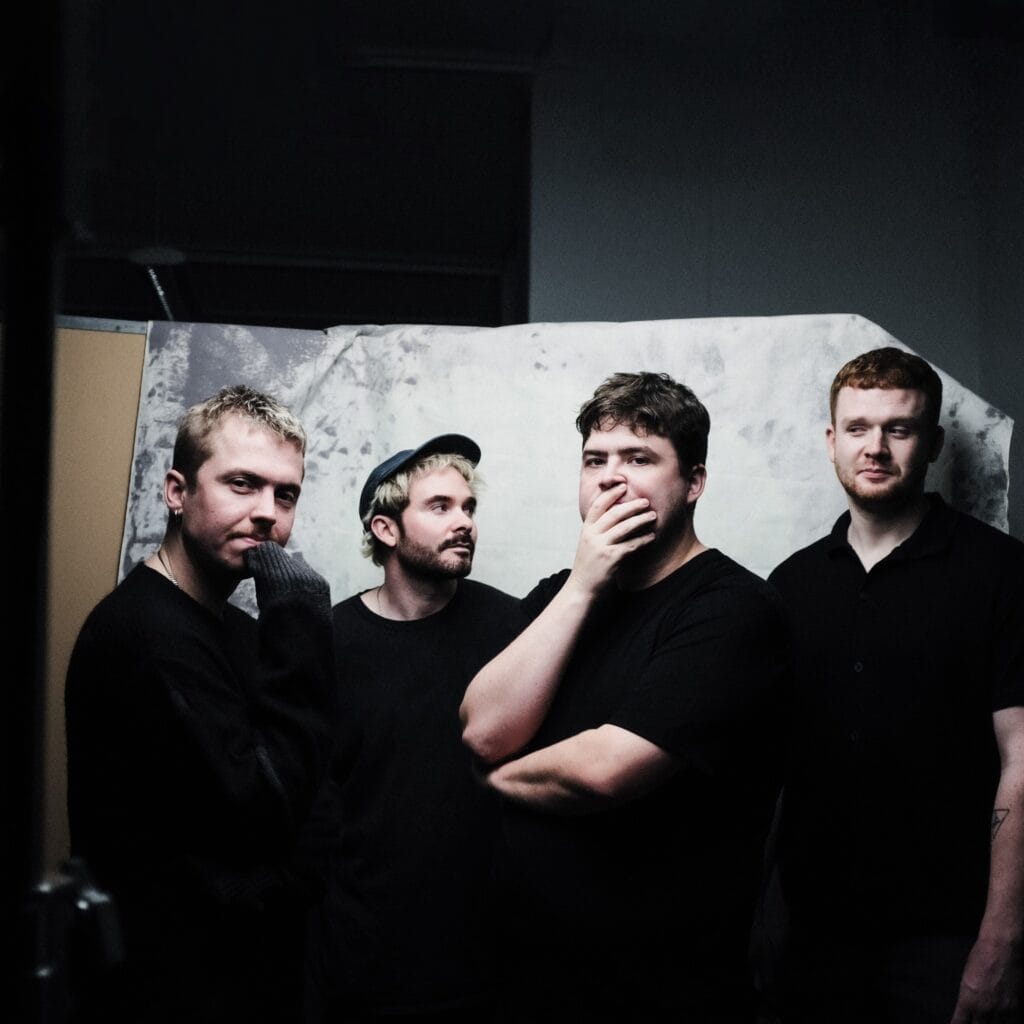
Like water off a duck’s back, Bdrmm find levity in recent criticism made on a shoegaze-dedicated Facebook group. With their third LP – Microtonic – the Hull quartet are transcending the bedroom-produced dream pop of their infancy, trading reverb-ridden guitars for ambient-techno structures and hypnotic drum beats. According to one Facebook user, it’s a “load of sh*t.”
Nowadays, the band are indeed less Yorkshire’s DIIV, more Danial Avery via guitars. In spite of criticism, however, a psychedelic framework continues to shape their sound; radically different are the tools and methods.
Through interlocking guitars and heavy pedal effects, Bedroom (2020) formed the soundtrack to early adulthood. With I Don’t Know (2023), the band would mature through experimentation; from the spy-thriller soundtrack, ‘Alps’, to the MBV-esque ‘Pulling Stitches’, their sophomore effort exuded a single-minded confidence.
With 2025’s Microtonic comes the ultimate pivot from rock to electronica, like that of Radiohead’s OK Computer (1997) to Kid A (2000) progression. Rather than comprising a group of privately-educated Oxfordians, the Hull quartet are comparatively salt-of-the-earth. Reflecting on their success up to now, Ryan Smith (vocals, guitar) notes:
“It’s been great! You see all this overnight success but with us it’s been a gradual grind. Lots of work, lots of kissing in the van [laughs]. It’s a joy, it’s fun, and it’s what we like doing. The fact we get to do it is a success in our eyes; the fact people come to the gigs, buy the records, listen to the music.”
For Joe Vickers (guitar), this joy is best encapsulated in NME’s 5-star reviews for Bedroom and Microtonic. Growing up as a NME reader, Vickers is still “mindblown” by the accolades. At the same time, the band has steadily evolved their sound and achieved acclaim on their own terms. For Jordan Smith (bass):
“To be pigeon-holed as a shoegaze band from the start… It was good but as musicians, we don’t want to repeat ourselves. It was something we were really conscious of when recording I Don’t Know. Microtonic was us embracing that we’re a complex group of people and have different interests and loves, and we like making music that isn’t just a wall of noise.”
If the band were to nominate an example of this evolution, they’d choose ‘Snares’. Combining rhythmic IDM sequencing with existential spoken-word passages, it’s a perfect distillation of Microtonic’s progressive sonic palette, culminating in a tune they’ll be proud of for years to come.
With uncharted sonic territory, however, came uncertainty upon recording the album. A “lightbulb moment” occurred when first performing ‘Lake Disappointment’ in the studio; the band soon realised the sort of energy they could create and “how well the new material sat alongside the old stuff.”
Going back to Daniel Avery – who remixed ‘Port’ in 2022 – the band’s loose style of shoegaze is now defined by pulsing electronics and shuffling drums that form, via extensive layering, ethereal walls of sound. In turn, Microtonic’s tracklist still bears meaningful resemblance to older guitar-oriented material, but delivers the shoegaze effect through more intricate, multifaceted methods.
Take, for example, the way in which its title track combines Trent Reznor-esque hauntology with a crescendoing riff mirroring New Order’s ‘Elegia’. The resulting distillation of noise, imbued with industrial and electronic textures, maintains the intense, dream-like euphoria of their past discography.
This desire to evolve speaks, in turn, to a working-class curiosity. During their Project House gig in November 2023, I noticed a distinct humility in their live dynamic; in addition to their broad Hullonian accents, the band were clearly feeding off the support of family-members comprising much of the venue’s front-row. Watching from a distance, there was a palpable sense of pride from those on-stage and off.
Years of graft and self-learning had culminated in a sold-out performance in which the quartet themselves appeared in awe of how good they sounded. Microtonic’s left-field direction is built upon a similar pride in one’s work; upskilling in and experimenting with new sonic territories out of genuine curiosity, rather than a class-based allegiance to experimental, more cerebral sounds.
And on the subject of Hull, Jordan speaks for them all.
“There’s never been a discussion for us to leave. It’s disappointing in the press to see us labelled as a Leeds band […] It grinds my gears because we’re a Hull band and we’re Hull born and bred. Us moving to London would be fucking stupid [laughs].”
This brings us back to the pervasive topic of class, regionality, and the role of arts & culture in the modern UK economy. Again, Jordan speaks candidly.
“People who say the [North / South] divide isn’t real.. That’s just a lie. It definitely exists. The amount of people I know who have moved to London and got incredible jobs, just because they’re in the capital, is disgusting. Even getting the train back from London, you manage to get to Birmingham or Doncaster in like an hour. And then you’re on some rickety steam train bullshit for two and a half hours to get back to Hull. The entirety of the North has been ignored.”
Music is a longstanding victim of this national imbalance. Industry hopefuls are better off relocating to London where opportunities are abundant. Better yet, one can transcend regional divides entirely by winning the genetic lottery. Indeed, it appears the dominant trend for emerging UK bands is at least one of its members having a blue hyperlinked relative on Wikipedia.
Bdrmm are well aware of this inequality. For what they lack in connections, the quartet makes up for in a profound marrying of graft and belief. The precarity of full-time artistry – best exemplified by the 2023 incident in which the band were not paid by a festival, and subsequently left financially insecure – is offset by a collective hope found within and between members. As Jordan rightly points out:
“You can’t turn on the telly or listen to the radio without being told a new statistic even more baffling than the one before (…) To have joy and happiness within our own world is to have the solace to carry on rather than just fucking give up and wait to die.”
The grounding of oneself to a place of upbringing, operating as a family rather than a business, as well as avoiding pretense when creating art – make for a rare band beholden to their own unique demands, while effortlessly spearheading a regional movement.
Sure enough, graft alone won’t always overcome systemic inequalities, but you’re better off trying than not. Likewise, there’s equilibrium to be found in representing one’s home, no matter its shortcomings, as Bdrmm continue to demonstrate.
“Don’t let your creativity be dampened by where you’re from,” advises Jordan. “The last thing we want to do is what other people want us to do. The most important thing in music is believing in your own ideas and the right people will listen.”
The above interview was conducted by editor Dom Smith. Find the audio for it below:

